
Microsoft Flight Simulator 98, abbreviated commonly as FS98, is a flight simulator video game. It was released in September 1997 for Microsoft Windows.
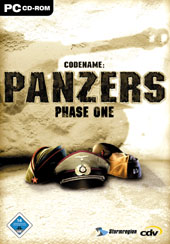
Codename: Panzers – Phase One is a 2004 real-time tactics video game developed by the Hungarian studio StormRegion and published by cdv Software Entertainment. It is set during World War II.

Grand Prix 3 is a computer racing simulator developed by MicroProse's UK development studio in Chipping Sodbury and published by Hasbro Interactive, released in July 2000. The expansion pack, "2000 Season", was developed by Simergy and published by Infogrames Interactive.
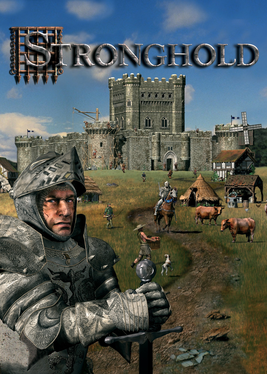
Stronghold is a 2001 real-time strategy video game developed by Firefly Studios and originally published by Gathering of Developers for Microsoft Windows and Mac OS X. It is the first instalment of the Stronghold series. The game focuses primarily on conquest and expansion through military pursuits but also has prominent economic and infrastructure development elements. There is both an economic and a military campaign to be played and both are discussed in the game manual. In the English version, the game takes place in Medieval Britain around the year 1066; however, since there is not always a time limit, scenarios can continue hundreds of years beyond that date.
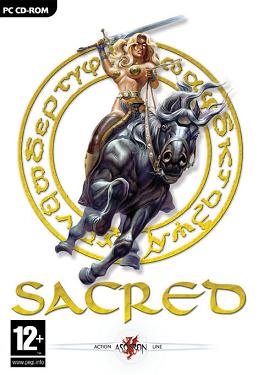
Sacred is a 2004 action role-playing game developed by the German company Ascaron and published by Take 2 Interactive. It is set on the magical continent of Ancaria, with characters of various races each with their own missions. Two expansion packs were released for the game in 2004 and 2005. In 2008, Linux Game Publishing announced that they would port the game to the Linux operating system.

Formula 1 97 is a racing video game developed by Bizarre Creations and published by Psygnosis for PlayStation and Microsoft Windows. It is the sequel to the 1996 video game Formula 1 and was based on the 1997 Formula One World Championship. This was the last Formula One game to be made by Bizarre Creations, who moved on to create the successful Metropolis Street Racer for the Dreamcast and Project Gotham Racing for the Xbox; development would move on to Visual Science and eventually Studio 33.
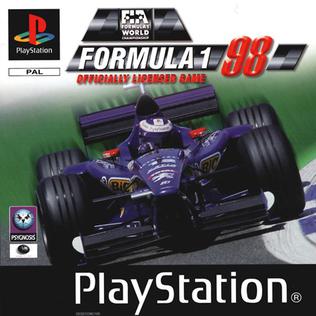
Formula 1 98 is a racing video game developed by Visual Science and published by Psygnosis for the PlayStation. It is the sequel to the 1997 video game Formula 1 97 and was based on the 1998 Formula One World Championship. It is the first game in the series to not be released for Windows.
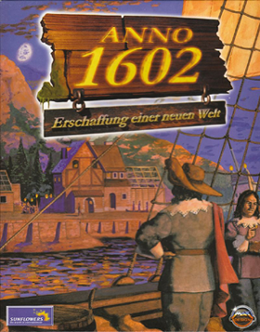
Anno 1602: Creation of a New World, entitled 1602 A.D. in North America, is a 1998 construction and management video game developed by Max Design and published by Sunflowers Interactive. Set in the early modern period, it requires the player to build colonies on small islands and manage resources, exploration, diplomacy and trade. The game design is noteworthy for its attempt to implement a 'progressive' artificial intelligence, meaning that the pace of the game changes in response to how quickly players act.

Pharaoh is an isometric city-building game released in November 1999. It was created by Impressions Games and published by Sierra Studios for Microsoft Windows. Using the same game engine and principles of Caesar III, it is the first such game in Sierra's City Building series to focus on another civilization of ancient times. Players oversee the construction and management of cities and settlements in Ancient Egypt, micro-managing every aspect of the city to ensure citizens are fed, employed, healthy and protected from diseases, disasters and wars. An expansion pack, Cleopatra: Queen of the Nile, was released in 2000, developed by BreakAway Games. In 2001, both the game and expansion pack were bundled together as Pharaoh Gold. A remake titled Pharaoh: A New Era was released by Triskell Interactive and Dotemu in 2023.

The Patrician is a 1992 historical trading simulation video game for Amiga, Atari ST and MS-DOS developed by Ascaron Entertainment and published by Triptychon Software. In the game, the player assumes the role of a merchant in any of several cities of the Hanseatic League, accumulating money, capital and consumer goods, and real estate, expanding his company, and furthering his career at home and abroad.

Gothic II is a 2002 action role-playing video game developed by Piranha Bytes for Microsoft Windows, as a sequel to Gothic. It was released for Microsoft Windows on 29 November 2002 in Germany, on 13 June 2003 in Europe and on 28 October 2003 in North America. A Nintendo Switch port titled Gothic II Complete Classic was released worldwide on 29 November 2023.

Anno 1503: The New World is a 2002 construction and management simulation video game developed by Austrian developer Max Design and published by Sunflowers Interactive. Part of the Anno series, it is a direct sequel to Anno 1602, the most commercially successful German video game ever by 2002. Anno 1503 revolves around building and maintaining a 16th-century colony in the New World.
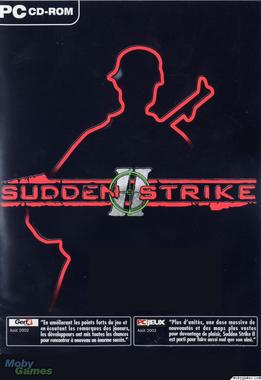
Sudden Strike 2 or Sudden Strike II, also known in Russia as Confrontation IV, is a real-time tactics computer game set in World War II, the second game in the Sudden Strike series and the sequel to the original Sudden Strike. It was developed by Russian developer Fireglow and published by CDV and was released in 2002.
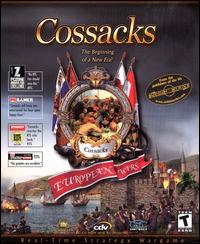
Cossacks: European Wars is a real-time strategy video game for Microsoft Windows made by the Ukrainian developer GSC Game World. It was released on 28 November 2000. The game has an isometric view and is set in the 17th and 18th centuries of Europe. It features sixteen playable nations each with its own architectural styles, technologies and no limit on unit numbers.

Stronghold: Crusader is a 2002 real-time strategy video game developed by Firefly Studios and originally published by Gathering of Developers for Windows. It is a sequel to the 2001 video game Stronghold. Crusader has much in common with the original Stronghold, but differs from its predecessor in the fact that the game is no longer set in England, instead being set in the Middle East during the Crusades. Another prominent addition not found in its predecessor is a skirmish mode in single-player, allowing customized battles with AI opponents instead of the linear campaign. The game was also released as Stronghold Warchest. This version was a compendium of Stronghold and an enhanced version of Stronghold: Crusader, containing additional characters and an additional Crusader Trail.

The Bugs Bunny Crazy Castle 2 is a platform video game developed and published by Kemco for the Game Boy in 1991. It is the sequel to the 1989 Nintendo Entertainment System and Game Boy game The Bugs Bunny Crazy Castle.
Davilex Games B.V. was a video game developer and video game publisher, located in Houten, Utrecht, Netherlands. It was founded in 1986 as part of Davilex International, and is most well known for its Racer franchise, with the games London Racer and London Racer II selling over 600,000 copies in the UK. Autobahn Raser's sales in the German market totaled 103,000 units from January through September 1998, which made it the region's sixth-best-selling computer game during that period. In February 1999, Autobahn Raser's computer version received a "Gold" award from the Verband der Unterhaltungssoftware Deutschland (VUD), indicating sales of at least 100,000 units across Germany, Austria and Switzerland. Davilex closed the game division in 2005 because it was not profitable enough, and their games were generally not well received. Beside games Davilex publsihed diffrent kinds of accounting and edjutainment programms.
On the Ball is a football management game series from the German developers Ascaron, former name Ascon. The premiere title in the series is On the Ball. The player is managing a football club in the English League. The original game was popular in Germany, and Ascaron created several sequels: "On the Ball 2", "On the Ball 3", and "On the Ball Action". Doppelpass was a bundle that included On the Ball and the self-running add-on Anstoss World Cup Edition. The English version has a minor fan base.

Sudden Strike, also known in Russia as Confrontation III, is a real-time tactics computer game set in World War II and the first game in the Sudden Strike series. Released in 2000, the game was developed by Fireglow based in Russia and published by CDV Software of Germany. In Russia, the game was marketed as a sequel to the 1996 real-time tactics game Counter Action, made by many of the same developers.

Who Wants to Be a Millionaire is a 1999 quiz/party video game originally developed by Jellyvision and published by Disney Interactive, based on the television franchise of the same name. The game was originally based on the American version of the show. It tasks the player with answering quiz questions in a limited time frame.


















